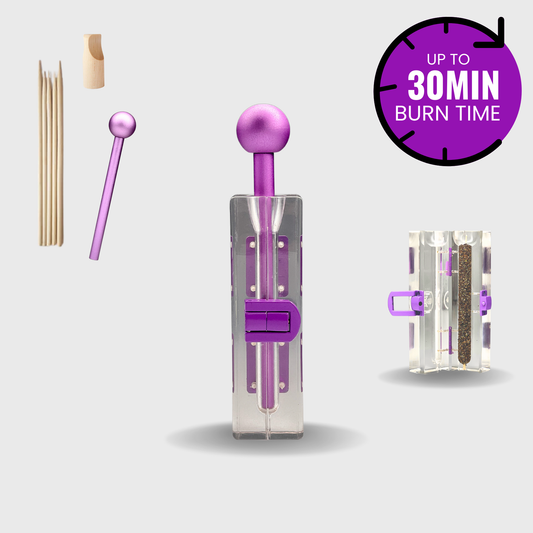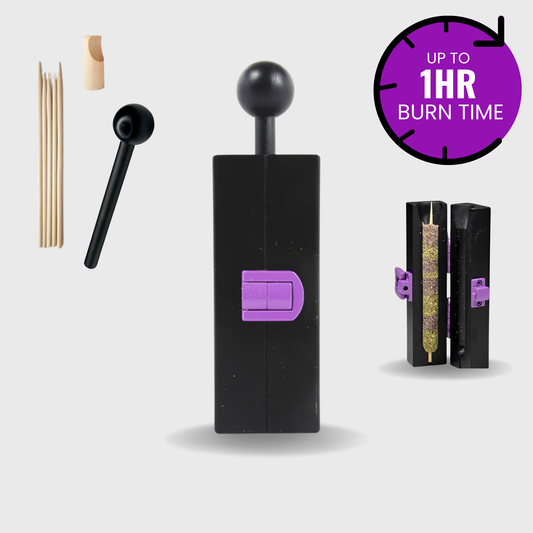- The U.S. cannabis market is projected to exceed $30 billion by 2025.
- Cannabis jobs grew by more than 30% annually from 2020 to 2022.
- Entry-level roles like budtenders are in high demand but highly competitive.
- Certifications from schools like Oaksterdam improve hiring chances significantly.
- Networking and soft skills often outweigh direct experience in getting hired.
Mapping the Cannabis Industry Career Field
Before applying to cannabis jobs, it’s crucial to understand the different sectors within the industry. Knowing where your strengths and interests align will help you focus your job hunt and overcome the competition.
Entry-Level "Plant-Touching" Roles
Often seen as the starting point to a cannabis career, plant-touching roles are hands-on and essential to the supply chain.
Budtenders
These are the customer-facing professionals in dispensaries who educate and guide consumers through product selection. A good budtender is part educator, part salesperson, and part therapist, offering support especially to medical cannabis users.
Trimmers
Harvesting cannabis plants is labor-intensive and vital for quality. Trimmers work seasonally or full-time, ensuring buds are trimmed efficiently and attractively. Precision, patience, and stamina are essential.
Delivery Drivers
As home delivery becomes more common, drivers play a key role in customer service and logistics. They're expected to handle sensitive products, maintain detailed logs, and interact politely with consumers.
Operational and Technical Roles
These involve behind-the-scenes work to ensure that the business runs lawfully and efficiently.
Cultivators (Growers)
These professionals manage the health and quality of the cannabis crops. Their knowledge covers everything from nutrient formulas and pest control to lighting cycles and harvesting windows.
Lab Technicians
Particularly important in medical and regulated markets, lab scientists and techs test products for potency, contaminants, and cannabinoid profiles, ensuring safety and compliance.
Compliance Officers
Often former legal or policy professionals, they interpret state laws and ensure day-to-day operations meet all regulatory standards. This is one of the fastest-growing mid-level cannabis careers.
Creative & Strategic Roles
These roles support brand awareness, advocacy, and customer engagement.
Marketing and Branding Professionals
With tight advertising restrictions in the cannabis space, creative professionals must build campaigns that balance compliance with innovation.
Content Creators
Writers, videographers, and graphic designers craft compelling storytelling to educate customers and promote products. A deep understanding of cannabis culture is an advantage.
Event Planners
From B2B expos to consumer-facing pop-ups and product launches, these roles focus on logistics, design, and compliance when hosting cannabis-related events.
Understanding the ecosystem helps you choose your niche—and prevents wasted time chasing roles that aren’t a match.

Cannabis Job Market Snapshot: Fast-Growing but Competitive
The cannabis industry is often talked about as the “green rush,” and for good reason. It’s one of the fastest-growing markets in the U.S., expected to reach $30 billion by 2025 (Statista, 2022).
According to the reports, cannabis jobs grew more than 30% annually from 2020 to 2022, resulting in over 428,000 full-time positions.
But here’s the catch: explosive growth means explosive interest. Over the past several years, the market has become more professional. Startups are giving way to major holdings and publicly traded companies, and investors are pouring millions into operations. This expansion means higher standards for hiring—from background checks to degrees and certifications.
You may compete against people with business degrees, agricultural science backgrounds, or years of retail and customer service experience. So while cannabis jobs are increasing, so is the bar to get hired.

Decide What You Really Want in a Cannabis Career
Getting hired becomes easier when you're very clear on your personal and professional goals. Think about
Do you want to work with people or plants?
Some jobs are heavy on interaction (budtenders, sales reps), while others are quieter and more technical (lab workers, cultivators).
Are you passionate about medicinal use or the recreational experience?
This can shape your tone during interviews and influence what kind of brands you want to align with.
Do you value corporate security or startup enthusiasm?
Bigger companies can offer benefits, while startups might offer faster growth and more freedom—but also more chaos.
What is non-negotiable for you?
Think about pay, commute time, culture fit, advancement opportunities, and company mission.
Having clarity here will ensure your job isn’t just another paycheck—it’s a step into a sustainable cannabis career path.

It’s Not All Rolling and Chill—What Cannabis Jobs Are Really Like
A common myth is that cannabis jobs are relaxed and low-pressure. The reality is quite different, and it’s better to know that upfront
Cash Pay Still Happens
Especially in companies operating in gray markets or with limited banking options. This can complicate tax filing and benefits.
High Expectations With Little Training
Particularly in customer-facing roles, companies may not invest in training as much as they should—meaning you’ll need to learn fast and self-educate.
Physical Labor
Working in cultivation or warehouse operations means lifting heavy loads, long shifts on your feet, and exposure to temperature extremes.
Legal Pressure
The law changes often. What’s acceptable one quarter might risk fines the next. Compliance is everyone's responsibility and affects daily protocols.
Before signing on, shadow someone or ask current employees about the day-to-day realities of their roles.
Create a Standout Resume That’s Cannabis-Ready
When considering how to get a cannabis job, your resume must balance professionalism with cultural fit. Here’s how to achieve that balance
Tailor every application. Don’t send generic resumes. Reference specific qualifications or mission statements in your cover letter.
Highlight transferable skills. If you’ve worked in retail, inventory, logistics, event planning, or agriculture—you have relevant skills.
Include cannabis-related knowledge. Even volunteer or personal experience with cultivation, advocacy, or content creation could be valuable—as long as it's presented professionally.
Frame cannabis use or previous underground work effectively. Staffing agencies can coach you here. Honesty is key, but discretion and sensible framing show maturity.
A great resume gets you considered. A great fit keeps you there.

Networking Is Not Optional: How to Build Industry Connections
In cannabis communities, who you know can matter as much as what you know. The informal nature of the space makes networking necessary.
Effective strategies
Attend local cannabis expos, dispensary education nights, and trade shows. These encourage relationships with local professionals and hiring managers.
Join industry organizations or advocacy groups. Groups like NORML, SSDP, and the National Cannabis Industry Association (NCIA) are great for connecting with professionals and staying updated.
Use LinkedIn professionally. Follow cannabis companies, comment insightfully, and send polite, personalized messages to professionals in your target roles.
As Danielle Barber of Harborside Health Center stated
“Sharing your story and being flexible can set you apart.” People want to work with others who are both competent and committed to the plant.

Why Soft Skills and Passion Still Matter
In an industry that’s still creating its identity, hard skills are important—but they’re not everything.
Employers consistently look for
Genuine motivation to help patients, customers, or the cannabis movement.
Adaptability in a regulatory environment that seems to change monthly.
Team players who can handle startup energy and wear multiple hats.
A good sense of humor, excellent communication, and personal integrity will take you far—even into leadership.

Enroll in a Cannabis Training Program (Yes, It Helps!)
Certifications immediately add credibility—especially for those brand-new to the scene.
Recommended programs include
Oaksterdam University: One of the first cannabis colleges, offering classes on horticulture, business, and law.
Green Flower Media: Offers online certification programs powered by accredited universities like Northern Michigan University.
Local community colleges: Increasingly offering cannabis science, business, or wellness programs tailored for regional markets.
Benefits of certification go beyond resumes. Many schools offer
Career services
Networking opportunities
Employer directories
Access to local internship programs
Education shows your seriousness and helps you speak the language professionals use.

Work With a Cannabis Staffing Agency
Staffing agencies focused on cannabis careers are becoming essential gatekeepers for many companies.
Advantages include
Inside knowledge of company actions, expectations, and hiring cycles.
Help refining your resume and coaching for cannabis-specific interviews.
Risk assessment guidance—like how to handle past illicit market experience in your applications.
Some well-known agencies include
- Vangst
- CannabizTeam
- Ms. Mary Staffing
- Higher Growth Search
A good recruiter can fast-track your entry and prevent rookie mistakes.

Know Your Rights, Read the Fine Print
The cannabis industry is young, and not all companies are well-managed or compliant. Protect yourself
Confirm business licensing. Every company should be able to prove they're above board.
Ask for clarity around benefits, PTO, and compensation. Especially if you're moving from traditional sectors.
Review NDAs or non-compete clauses before signing. Get legal help if needed.
You’re not just looking for any job—you’re building a career. Stability, compliance, and safety matter.

Use Professional Judgment—Don’t Let “Cannabis Cool” Cloud Your Etiquette
Professionalism still rules in cannabis—sometimes more than in other industries.
Tips
Use cannabis terminology appropriately. Know when to use “flower” vs. “bud,” “concentrate” vs. “dabs.” Sound educated, not slang-heavy.
Dress the part. Even if the office atmosphere is relaxed, strive for polished business-casual.
Stay on-brand online. Keep memes and controversial opinions off your LinkedIn.
Being cannabis-friendly doesn’t mean being unprofessional.

Utilize Your Existing Passions & Skills for Uncommon Roles
The cannabis industry connects with many fields. Using your own background can uncover niche roles
Writers and marketers can work with cannabis media or e-commerce brands.
Chefs or nutritionists can consider edibles development and wellness menus.
Lawyers, accountants, and HR experts are needed to scale businesses legally.
Even parenting bloggers, construction workers, and digital engineers have made a place in cannabis—when they tell their unique story well.

Bonus Tip: Align with a Brand That Shares Your Vision
Values matter more than ever. Choose companies that align with your beliefs in areas like
Sustainability: Environmentally conscious practices
Social equity: Hiring formerly incarcerated individuals or investing in marginalized communities
Cannabis education: Advocating for science-based messaging and public awareness
The right fit increases job satisfaction and leads to longer, more impactful cannabis careers.
Final Thoughts: From Smoker to Professional—Build a Career Around the Culture You Love
It’s not easy to break into cannabis—but it is worthwhile. A job in this industry lets you combine passion with professionalism—and join a movement that’s reshaping health, law, and culture.
So whether you're dreaming of crafting premium edibles, cultivating award-winning flower, or driving national policy—the path is open. The real secret is showing up with purpose, staying informed, and honoring the plant’s legacy as you grow.
Citations
Statista. (2022). Legal cannabis market value in the United States from 2019 to 2025 (in billion U.S. dollars). https://www.statista.com/statistics/1095836/us-legal-marijuana-market-size/
Danielle Barber, wellness consultant at Harborside Health Center. (Source: https://cannabisnow.com/6-tips-secure-career-cannabis-industry/)




